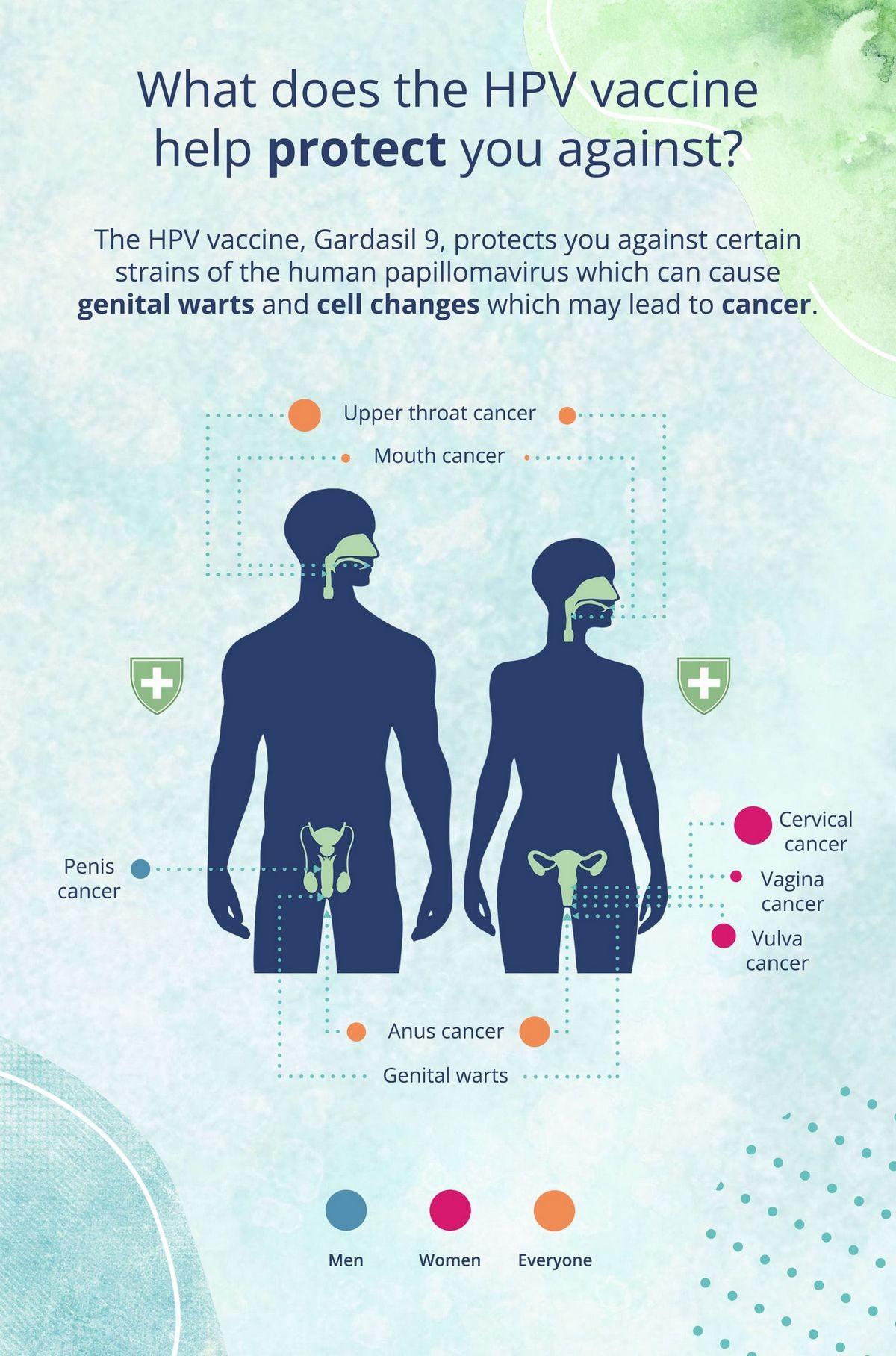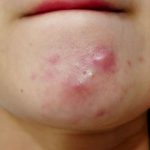
Contents
- 1 HPV (Human Papillomavirus) Infection
- 1.0.1 Is HPV an STD?
- 1.0.2 Are oral and genital HPV infections the same?
- 1.0.3 Who gets infected with HPV?
- 1.0.4 Is HPV contagious? How do you get HPV?
- 1.0.5 How is HPV transmitted or spread?
- 1.0.6 How long is someone with HPV contagious?
- 1.0.7 What are the signs and symptoms of HPV in men and women?
- 1.0.8 What about HPV infection and pregnancy?
- 1.0.9 Is there a vaccine against HPV infection?
- 1.0.10 Who is at risk for contracting HPV infection?
- 1.0.11 Is there a test for HPV infection?
- 1.0.12 From
- 1.0.13 Is there a treatment or cure for HPV?
- 1.0.14 Which specialties of doctors treat HPV infection in men and women?
- 1.0.15 What are the risks and side effects of the HPV vaccine?
- 1.0.16 Does HPV infection cause cancer?
- 1.0.17 What is the prognosis for a person with HPV infection?
HPV (Human Papillomavirus) Infection
Human papillomaviruses (HPVs) are a group of over 100 virus types that infect human skin and mucus membranes.
- Most people with HPV never know they are infected and never develop any problems, signs, or symptoms related to the infection, which usually goes away on its own.
- In fact, HPV infection is so common, it is estimated that most sexually active men and women get the infection at some point in their lives.
- However, certain types of HPVs may cause health problems. For example, some types cause genital warts and cervical cancers, while others cause skin warts.
- Not every HPV infection results in health problems or produces signs and symptoms.
- Cancers caused by HPV typically take many years to develop.
Is HPV an STD?
HPV infection is spread through sexual intercourse, so it is classified as a sexually-transmitted disease (STD) or sexually-transmitted infection (STI).
HPV is the most common STD and is estimated to affect most people at some point in life.
Are oral and genital HPV infections the same?
The same types of HPV that infect the genital areas can also infect the oral cavity (throat and mouth).
Some types of oral HPV cause throat and mouth cancers, while others cause warts in the mouth or throat. In most cases, oral HPV infections go away without problems.
QUESTION
Who gets infected with HPV?
HPV infection is extremely common. All sexually active men and women acquire an HPV infection at some point in life.
Is HPV contagious? How do you get HPV?
Yes, HPV is highly contagious. Common warts on the skin or soles of the feet are contagious, as contact with warts may spread the HPV infection. Genital warts are also contagious.
HPV can be spread from person to person even when the infected person has no signs or symptoms.
How is HPV transmitted or spread?
As mentioned previously, genital HPV infection is spread through sexual contact, including vaginal, oral, or anal sex.
- It can be spread when the infected person has no signs or symptoms.
- It also takes many years for HPV-related health problems to appear, making it difficult for some people to know when they became infected.
In addition to sexual contact, HPV infection can be spread by any skin-to-skin contact.
Spread of HPV infection is also likely from touching surfaces that have been in contact with an HPV-infected person.
How long is someone with HPV contagious?
There is no known treatment to rid the body of the virus, but most cases of HPV infection resolve on their own without treatment and do not cause long-term problems or cancers.
What are the signs and symptoms of HPV in men and women?
Signs and symptoms of HPV infection in men
- HPV infection usually does not produce signs or symptoms in men, although some types can lead to genital warts or cancers of the penis or anus.
- Other signs of HPV infection in men include typical skin warts.
Signs and symptoms of HPV infection in women
- As with men, HPV in women usually does not produce signs or symptoms. However, in some cases, it can lead to genital warts, skin warts, or cancerous changes in the cervix.
- Pap testing allows for early detection of HPV-related changes in the cervix.
What about HPV infection and pregnancy?
Acquiring HPV infection during pregnancy is possible, but even if the baby gets the infection, it usually goes away without problems.
- HPV infection has not been linked to pregnancy complications such as miscarriage or premature delivery.
- In rare cases, babies born to women with HPV infection and genital warts have developed warts in the back of the throat (respiratory papillomatosis).
- Genital warts can typically be treated safely while a woman is pregnant.
Is there a vaccine against HPV infection?
Vaccines are available against the most common types of HPV that cause genital cancers and genital warts. The vaccines are given as a 3-shot series. HPV vaccination is recommended for preteen boys and girls at age 11 or 12. The vaccine does not contain live virus, so it is impossible to get HPV from the vaccine.
Examples of available vaccines in the US include:
By clicking Submit, I agree to the MedicineNet’s Terms & Conditions & Privacy Policy and understand that I may opt out of MedicineNet’s subscriptions at any time.
Who is at risk for contracting HPV infection?
Although HPV is very common, certain risk factors increase the chances of getting an HPV infection. These include having multiple sex partners, a weakened immune system, or cuts, abrasions or breaks in the skin at the site of contact with an infected person or contaminated surface.
Is there a test for HPV infection?
There is an HPV test available to detect the presence of HPV in the cervix. However, there is no HPV test that can determine which infections will go away and which will cause problems.
From
Sexual Conditions Resources
- How to Treat Cold Sores
- Sex and Headaches: What’s the Link?
Featured Centers
- What Are the Best PsA Treatments for You?
- Understanding Biologics
- 10 Things People With Depression Wish You Knew
Is there a treatment or cure for HPV?
There is no specific treatment that can clear HPV infection, but there are treatments available for the conditions and cancers caused by HPV:
- Medications and procedures can treat genital warts and skin warts.
- Precancerous cervical changes can be treated to prevent cervical cancer.
- Cancers caused by HPV are most treatable when detected and treated early.
Which specialties of doctors treat HPV infection in men and women?
Primary care specialists, urologists (for men), gynecologist-obstetricians (for women), and dermatologists are among the doctors who treat HPV infections.
What are the risks and side effects of the HPV vaccine?
HPV vaccines have been shown to be safe. The most common side effects are bruising, itching, redness, tenderness, or swelling around the injection site.
In rare cases, women have also reported experiencing:
These side effects are typically short-lived and go away on their own without treatment. There is a very small risk of an allergic reaction, which can happen with any vaccination.
Does HPV infection cause cancer?
Most cases of HPV infection do not cause signs or symptoms and resolve on their own without treatment.
However, infections with certain HPV types can cause various cancers in both men and women.
What is the prognosis for a person with HPV infection?
Most people who develop HPV infection never have any signs or symptoms from the infection.
- In rare cases, persistent HPV infection can lead to certain cancers. It is currently impossible to predict who will have persistent HPV infection or infection that leads to cancer.
- About 12,900 women in the US are estimated to develop cervical cancer, yet it is estimated that all sexually active people will have been infected with HPV at some point.
U.S. Centers for Disease Control and Prevention. "Genital HPV Infection – Fact Sheet." Updated: May 19, 2016.


